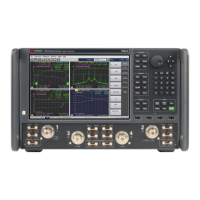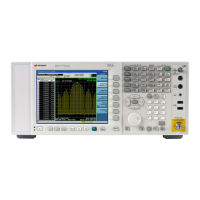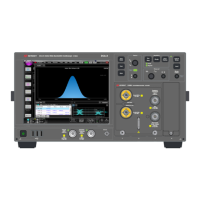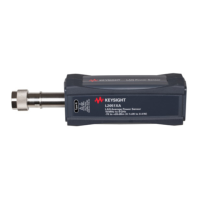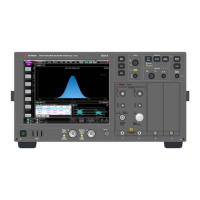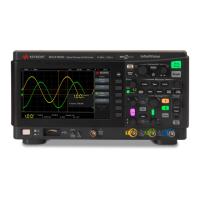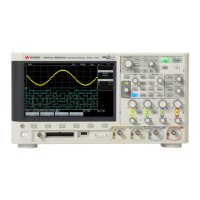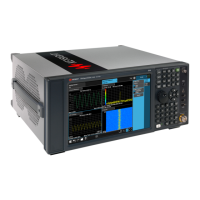7 Save/Recall/Print
7.3 Save
Notes Queries disk usage information (drive capacity, free space available) and obtains a list of files and
directories in a specified directory in the following format:
<numeric_value>,<numeric_value>,\{<file_entry>\}
It returns two numeric parameters and as many strings as there are files and directories
The first parameter indicates the total amount of storage currently used in bytes
The second parameter indicates the total amount of storage available, also in bytes. <file_entry>
is a string. Each <file_entry> indicates the name, type, and size of one file in the directory list:
<file_name>,<file_type>,<file_size>
As the Windows file system has an extension that indicates file type, <file_type> is always empty.
<file_size> provides the size of the file in bytes. For directories, <file_entry> is surrounded
by square brackets and both <file_type> and <file_size> are empty
7.3.59 Mass Storage Change Directory (Remote Command Only)
Remote
Command
:MMEMory:CDIRectory [<directory_name>]
<directory_name> must be a valid logical path
:MMEMory:CDIRectory?
Example
:MMEM:CDIR "C:\Program Files"
Notes Changes the current directory for a mass memory file system. The <directory_name> parameter is
a string. If no parameter is specified, the directory is set to the *RST value
At *RST, this value is set to the default user data storage area, that is defined as System.En-
vironment.SpecialFolder.Personal
Query returns full path of the current directory as a quoted string
7.3.60 Mass Storage Copy (Remote Command Only)
Remote
Command
:MMEMory:COPY <string>,<string>[,<string>,<string>]
<string> must be a valid logical path
Example
:MMEM:COPY "C:\TEMP\Screen_0000.png","C:\"
Notes Copies an existing file to a new file or an existing directory to a new directory
If no directory is specified, uses the current directory
Two forms of parameters are allowed. The first form has two parameters. In this form, the first
parameter specifies the source, and the second parameter specifies the destination
The second form has four parameters. In this form, the first and third parameters specify the source.
The second and fourth parameters specify the directories. The first pair of parameters specifies the
source. The second pair specifies the destination. An error is generated if the source doesn’t exist or
the destination file already exists
This command will generate an “access denied” error if the destination is a restricted folder (for
example, C:\Windows) and you do not have Power User or Administrator privileges
2306 Short Range Comms & IoT Mode User's &Programmer's Reference
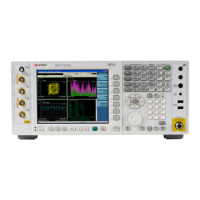
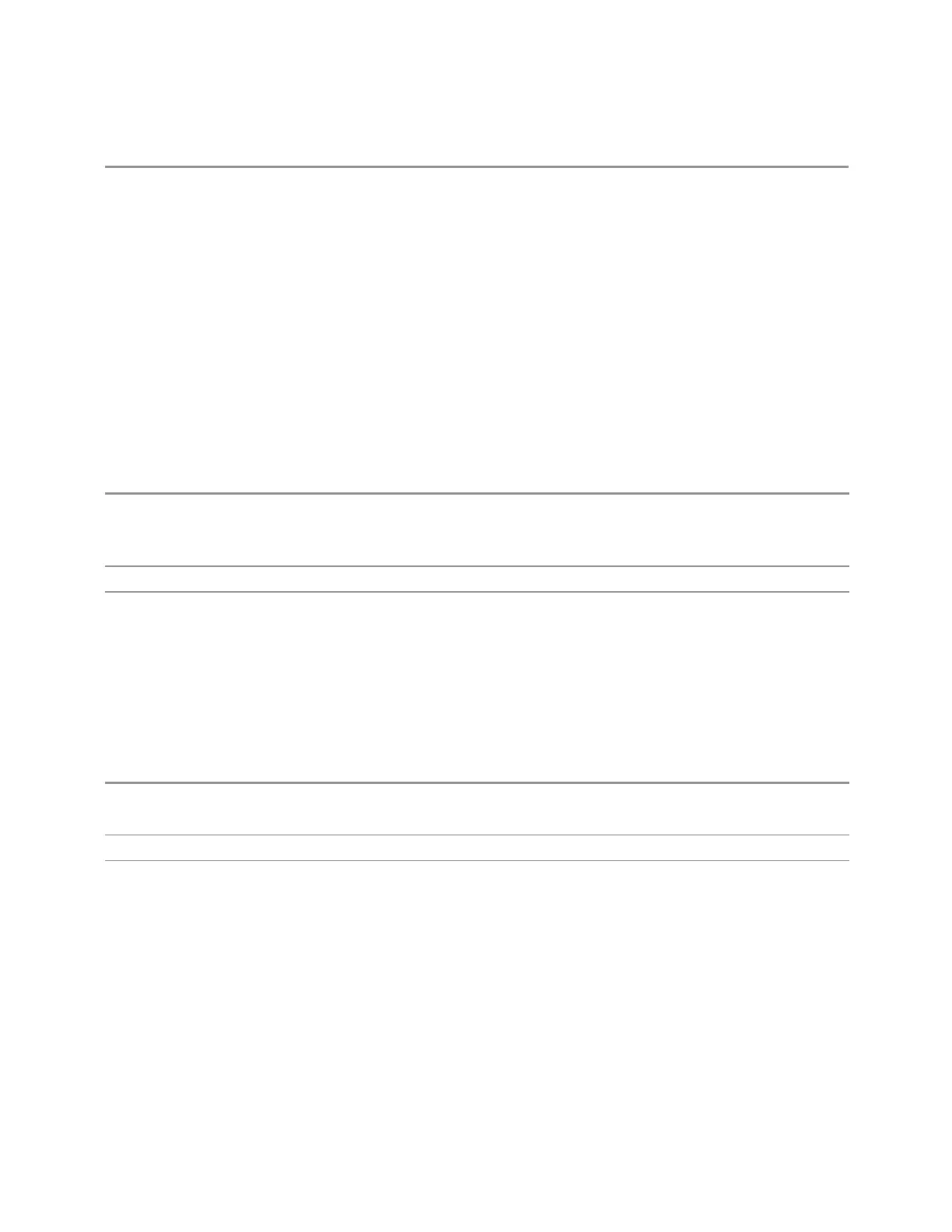